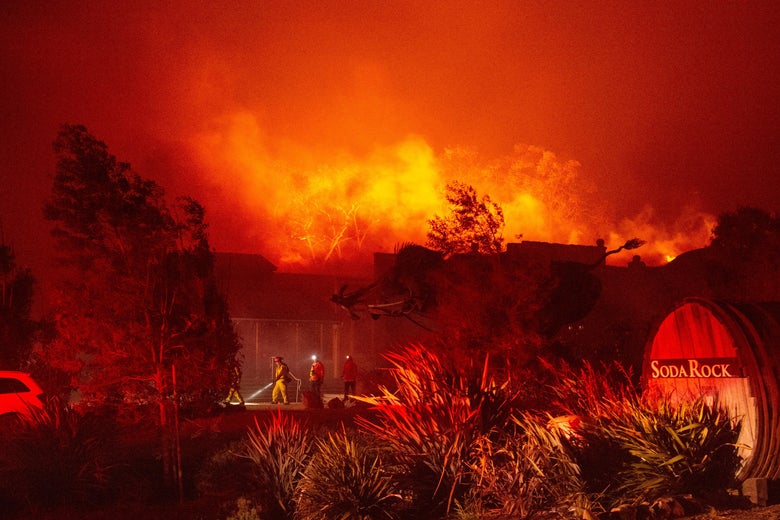Last month, Brentwood, Los Angeles residents woke up to 745 acres of their city in flames. Ongoing drought and strong winds were the catalysts for an Extreme Red Flag Warning, putting more than 2 million Californians at risk for wildfires. The state has had so many wildfires that it’s begun to name them—the most recent is The Getty.
According to The UN Refugee Agency “climate refugees” are people seeking security in the midst of toiling climatic changes. Although the phrase does not officially exist in international law, it’s use is becoming increasingly common across the globe.
In 2018, severe floods and drought displaced more than 371,000 people in Afghanistan. Cyclone Idai and Cyclone Kenneth affected more than 2.2 million people across Mozambique, Zimbabwe and Malawi this year. And raging wildfires have now displaced more than 200,000 Californians.
The polarized political views on global warming are causing many environmental activists to make every effort to counteract President Trump’s disbelief of climate change. Mariah Weber, UMKC student and member of the Sunrise KC Movement, is concerned for many Americans who continue to disbelieve the climate crisis.
Primarily, Weber worries that municipalities adapting to the symptoms of the climate crisis may reaffirm a lack of need for larger action for those who remain ambivalent to the issue.
“While infrastructure is strengthening to accommodate forest fires and prevent rising death tolls, that is not synonymous with a weakening of the problem itself,” Weber said.
As fears grow for many climate crisis believers, so do innovative ways to draw attention to the issue.
Dr. Davies, a UMKC professor of environmental studies, shares a similar concern with Weber.
“It isn’t a climate crisis so much as a human crisis,” Davies said.
Climate activists believe the people in power who can affect the climate are responsible to act at the structural level. As the number of internally displaced Californians increases, so do pushes for the U.S. government to come up with preventative plans. Will it happen while President Trump is in office? It doesn’t seem likely, but Davies says this shouldn’t diminish one’s sense of hope.
While the rising number of “climate refugees” is excruciating, Davies tells believers to not get overwhelmed. There are many things an individual can do to minimize their carbon footprint, and the strongest of these actions, Davies emphasizes, is voting. New labels such as “climate refugees” suggest greater awareness, but will the crisis affecting Californians cause municipalities to take action?
The answer remains to be seen.
Amdwy6@mail.umkc.edu








